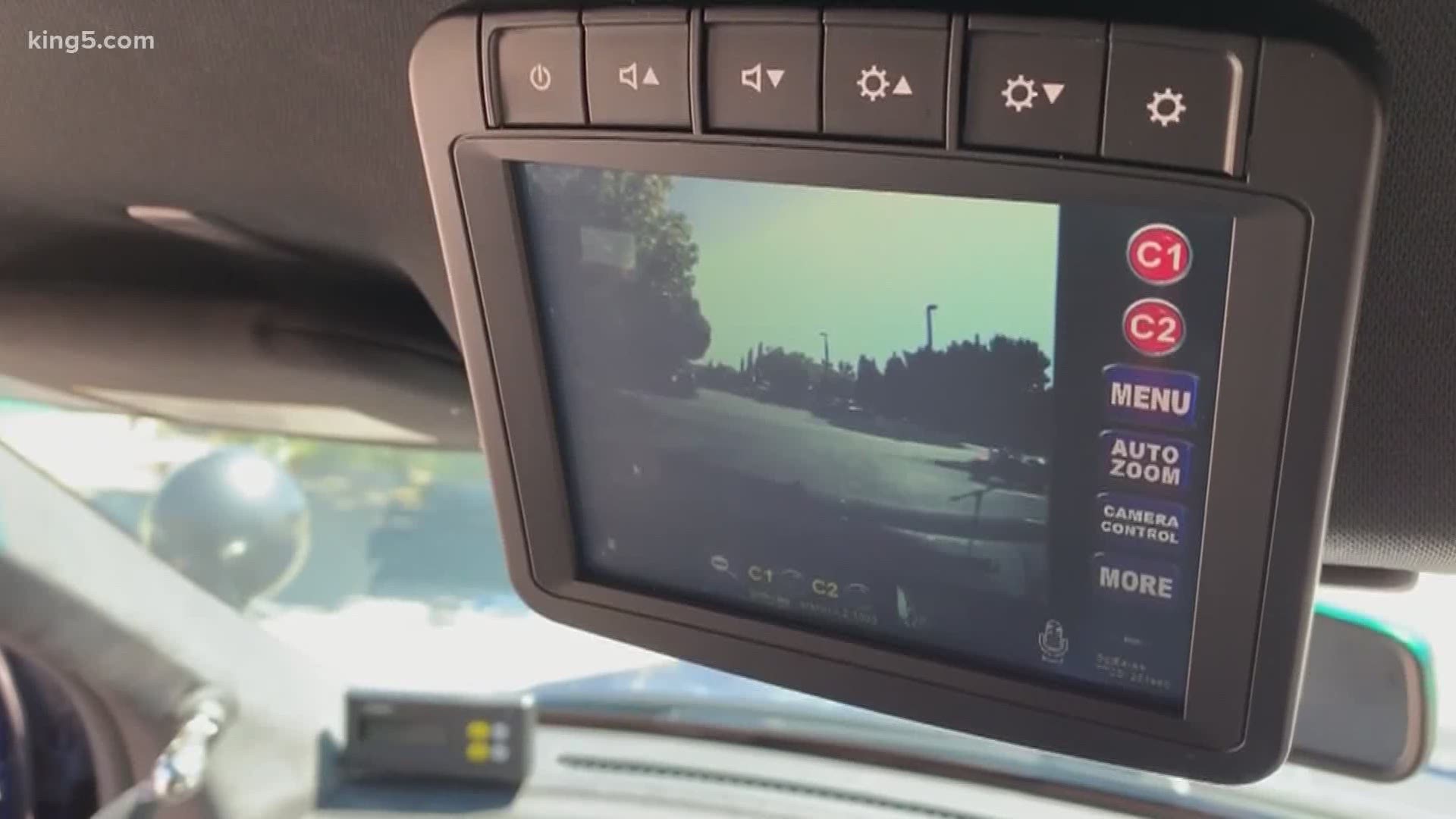LAKEWOOD, Wash. — The Lakewood Police Department announced that it is expanding its camera program to all of its patrol cars.
However, activists say that there are limits to patrol car cameras, and they continue to push for body cameras for officers.
The announcement follows the backlash faced by Lakewood Police Chief Mike Zaro for comments he made in a June 22 city council meeting about the effectiveness of body-worn cameras.
Zaro was asked by councilman Jason Whelan for his thoughts on the use of body cameras.
“A camera, no matter what angle, or where it’s at, or who’s wearing it, will never capture what an officer thinks or feels,” Zaro said.
Protesters who gathered outside Lakewood’s police department July 12 to protest the killing of 26-year-old Said Joquin by Lakewood police officer Mike Wiley, denounced Zaro’s comments.
But in an interview with KING 5, Zaro said his words had been misinterpreted.
“There has been this misconception about that council meeting where I’m somehow against body cameras,” Zaro said. “That’s not the case.”
Zaro said he supports body camera programs “if they’re implemented correctly and appropriately.”
When asked whether his department would get a body camera program, Zaro said he could offer “a strong maybe.”
While the future of body-worn cameras is uncertain at the department, Zaro said he is focused on expanding his department’s in-car camera program. Zaro said all of the department’s roughly 60 patrol cars would be equipped with in-car cameras by the end of 2020.
The cameras mount to the top of a patrol car’s windshield and begin recording automatically when an officer turns on a siren. The cameras also capture audio from microphones that officers are required to wear throughout a shift. The audio has a range of about 1,000 feet from the patrol car.
Zaro acknowledged that there are limits to how much the cameras can capture on video.
“Granted, it’s not a 360 [degree] view, but it does provide a detached perspective of the physical action,” he said.
Zaro has met with community organizers like Candace Wesley of Tacoma Ceasefire, who applauded him for engaging with the community.
But Wesley said the in-car camera program does not go far enough and she will continue to lobby for body cameras.
Zaro said any changes would take time.
“Don’t misinterpret our deliberate approach as being reluctant,” he said. “It’s just being deliberate and making sure we’re doing it right.”

